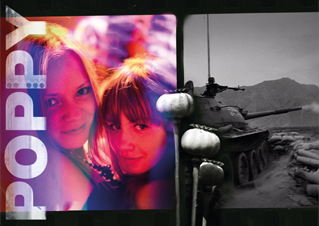War and organised crime gone global


Former Soviet states along the Northern Route are so unstable they are like the war’s ante-chamber, an accident waiting to happen. In Tajikistan, drug trafficking makes up the equivalent of an estimated 30% of GDP, leaving little doubt about government involvement. After war broke out in Ukraine, the region has become a new conduit for traffickers.

The Balkan Route is the old traditional route for trafficking heroin. The Kosovo Liberation Army was one of the first rebel movements to copy the business model of the Afghan resistance by using large-scale heroin trafficking to finance their uprising during the war in Former Yugoslavia.

New kid on the block of trafficking routes is the Southern Route. The burned out wreckage of an unregistered Boeing 727 transporting tons of cocaine in the Mali desert alarmed security analysts around the world. Drug trafficking is booming in some of the most volatile areas of West-Africa, providing revenue for groups as Al Qaida and ISIS.






POPPY Interactive takes you on an eye-opening journey that reveals how drug money destabilizes entire countries, fuels global conflicts, and allows a worldwide illegal economy to grow.
 or
or


The interactive documentary POPPY takes you on an eye-opening journey that reveals how drug money destabilizes entire countries, fuels global conflicts and allows a worldwide illegal economy to grow.
The implosion of Libya, Syria and Iraq has gone hand in hand with the rise of Islamic State and groups such as al Qaeda. Many of those rebel movements have spawned from Afghanistan during the Cold War.
Globalisation has allowed the very same forces driving the fragmentation of Afghanistan to replicate elsewhere in the world in ever more violent ways.
POPPY Interactive is a protracted investigation spanning over 20 years and covering the global nexus of drugs, war and organized crime using photo, video, radio reports and found footage.
Guided by POPPY’s interactive maps you will explore three interconnected routes across the world, covering countries and cities on opposite sides of the globe, including Afghanistan, Pakistan, Dubai, London, Washington and Brussels.
During your journey you will discover that the connection between war, organized crime and chronic poverty is tight and complex.
You will meet opium farmers, war lords, drug traffickers, Tajiki border guards (living on a meagre salary of 20 dollars a month), a worried mom in streets of East London, and many more. All these people are part of a large, frayed fabric that is creating havoc in many parts of the world.
Antoinette de Jong (Tilburg, 1964) and Robert Knoth (Rotterdam, 1963) are visual storytellers whose work has embraced photography, video, in-depth journalism, radio, installations and book projects. In their highly personal work they aim to show the layered complexity of various social, economic and political issues and the effects of those issues on ordinary people.
They have reported from some of the world's main conflict and post-conflict areas. Antoinette lived and worked in Afghanistan during the 1990s under the Taliban regime. Robert has covered Afghanistan, the war in the former Yugoslavia, and the civil wars in Angola, Somalia and Sierra Leone.
Following their prestigious book, POPPY: Trails of Afghan Heroin, and a renowned video installation, this new interactive documentary by de Jong and Knoth combines analysis and a fact-based global perspective with intimate personal stories. It took them more than 20 years to unravel an impressive and elusive global network of insurgents and terrorists, drug cartels, and other criminal organizations.
Submarine Channel explores the narrative possibilities of new and emerging genres such as the interactive documentary, the interactive graphic novel, transmedia storytelling and virtual reality. Notable projects include the transmedia documentary Last Hijack Interactive (Emmy Award Best Digital Fiction, 2015), the multiple-award-winning interactive documentary Refugee Republic (2015) and the surreal tragicomedy in virtual reality Ashes to Ashes (Best immersive 360 video Dutch VR Awards & nominated for the Gouden Kalf “Dutch Oscar”, 2017). Submarine Channel is part of the production company Submarine, founded by Femke Wolting and Bruno Felix.
POPPY Interactive: War and Organized Crime Gone Global is made possible with the support of Creative Industries Fund NL, the Netherlands Film Fund, Fonds 21, Mondriaan Fonds and the Amsterdam Fund for the Arts (AFK).
a Submarine Channel production
Directors
Antoinette de Jong & Robert Knoth
Producers
Bruno Felix & Femke Wolting
Creative producer
Michel Reilhac
Interactive producer
Corine Meijers
Interface design
Christiaan De Rooij
Web development
Aart Jan van der Linden
Editing
Peter Claassen
Sound design
Frank van der Weij,
Jelle van Osenbruggen
Impact Producer
Iván Garcia-Romero
Editing teasers & introduction
Maurik de Ridder
Production assistance
Davide Banis
Marlieke Hoepman
Development
Hans Dortmans, Menno Otten, Fabie Hulzebos, Yaniv Wolf, Dagan Cohen, Wieke Kapteijns
English corrections
Judith Kingston
Stills
AIR COCAINE: Serge Daniel / AFP / Getty Images
COCAINEVILLE: Copyright: © Francesca Tosarelli
POPPY Interactive: War and Organized Crime Gone Global is based on the book and video-installation POPPY: Trails of Afghan Heroin
POPPY: Trails of Afghan Heroin was made possible with the support of SNS REAAL Fund, VSB Fund, Mondriaan Fund, NCDO, AFEW, Foundation Sem Presser Archive, Foundation for Democracy and Media, Prince Bernhard Culture Fund, and was produced by Iris Sikking, Paradox.
With special thanks to
Paradox
International Film Festival Amsterdam (IDFA), Forum
Sheffield International
Documentary Festival, MeetMarket
We would like to thank
Kummer&Herrman, Mark Glynne (Anthill Sound design), YdocPublishing and Hatje Cantz Verlag, Ans
de
Jong-ten Barge, Jannie Knoth-te Brake, Muslem Hayat, Tim Johnston, Ismail Khan, Amir Shah, Nadeem
Ahmed,
Mehboob Ali, Charlotte Althenhoner, Roberto Arbitrio, Muhammad Ayub, Klaas Jan Baas, Dini Bangma,
Jules
Banffer, Hans van Blommestein, Lars Boering, Chris de Bode, Harm Botje, Ilona van der Braak, Jan van
den
Brand, Christer
Brannerud, Polly breur, William de Bruin, Heleen Bulthuis, Simon Burer, Jildou van der Bijl, Ian
Clarke,
Kate Clarke, Nick Coke, Rupert Colville, Liz Cotton, Rod Curtis, Ellen van Dalen, Anke van Dam,
Rik Delhaas, Peter Delpeut, Fieneke Diamand, Richard Dion, Henk van den Dool, Richard Donk, Duguf,
Guljan Ermekbaeva, Gijsbert van Es, Lianne Fincken, Galina Fomaidi, Steve Forrest, Bevis Fusha,
Zamira
Ganieva,
Kathy Gannon, Frits Gierstberg, Phil Goodwin, Peter Greste, Marion Grobbee, Hanna van der Haar,
Shahab
Haider, Toon van Ham, Feruza Hamidova, Marjolein Hammink, Rebecca Harley, Markus Hartmann, Fatos
Haziri,
Hezbollah(driver), Leo van Hee, Ulrike Helmer, John Holland McCowan, Arthur Herrman, Gert Hindrix,
Diederik van Hoogstraten, Lonneke van Hout, Siraj Islam, Maulana Taj-ul-Amin Jabal, Jamal, Ingeborg
Jansen, Huub Jaspers, John Jennings, Alan Johnston, Arendo Joustra, Frits Kemperman, Behrooz Khan,
Muzzamil Khan, Alfred Koster, Theo Kloppenburg, Yulia Kravchuk, Hans Kuitert, Jeroen Kummer, Mark
Lavine, Marina Lisitsina, Frenk van der Linden, Victor Levie, Mike Lusmore, Robina Mahmoud, Blerina
Marini, Jaqueline Maris,
Jitka Markova, Joost van der Meer, HarunMiah, Arjan Muca,Syed Minhaj-ul-Hassan, Genci Mucollari,
Odile
Mullajanov, Munir, Ruslan Myatiyev, Fawzia Nabi, Loretta Napoleoni, General Rustam Nazarov,
Hans Nijenhuis, Zarrina Nivozova, John Novis, Willem Offenberg, Olaf van Oudheusden, Warna
Oosterbaan,
Frank Ortmanns, Edlira Papavangjeli, Matthieu Peerlings, Lori Polena, Wieger Poutsma, Suzannah
Price,
Ahmet Prenci, Erik van Prooijen, Ahmed Rashid, Natalyia Ruda, Anna Sanginova, Evelien Schotsman,
Suzanne
Schanz, Danusia Schenke, Maarten Schilt, Carola Schoor, Michael Semple, Jotham Sietsma, Wim
Spijkers,
Laura Starink, Paul Steenhuis, Fred Stroobants, Devika Strooker, Evgenia Sveshinsky, Rasoul
Rakhimov,
Ahmed Rashid, William Reeve, Rene van Rijckevorsel, Fred Ritchin, Bart Rijs, Samo Rovan, Grid Rroji,
Sarah Russell, Colonel Sadullo Rahmatulloev, Syed Salahuddin, Sokol Selfollari, Mukhtar Shah,
Brigadier
Mahmood Shah, Aijaz Shaikh, Kathy Sherriff, Iris Sikking, Gert Staal, Jan Willem Steenmeijer, Liz
Spencer, Noel Spencer, Evgenia Sveshinsky, Guillaume Teerling, Herman van den Tempel, Ibrahim
Tajiki,
Peter Tinti, Gary Thomas, Katja Thomas, Elena Vaskrisjenska, Riccardo Venturi, Hans Verstraaten,
Dirk-Jan Visser, Yulia Koba, Hans de Vreij, Matthea Vrij, Bas Vroege, Adam Wade, Sue Wade, Daoud
Wahab,
Ingrid Walschot, Maartje Wildeman,
Andrew Wilder, Terrence White, Stuart Worsley, Alem Yacoobi, Rahimullah Yusufzai, Yussuf, Judith
Zaal,
Ehsan Zahine, Sikandar Zaman, Ahmad Zubair
In memory of
Abdi Farah, Sharon Herbaugh, Mirwais Jalil, Tom Little, Natasha Singh, Adri Verzijl
Documentary makers Antoinette de Jong and Robert Knoth have brought together their extensive research to create a website with a clear navigational structure. The user can unravel an impressive network of insurgents and terrorists, drug cartels and other criminal organizations. A journey through various locations and times shows how drug money destabilizes parts of the world, fuels conflict and allows a worldwide illegal economy to grow.
Antoinette de Jong is a writer, photographer and broadcaster, based in the Netherlands. Her work includes in depth reporting and documentaries for VPRO and Radio Netherlands World Service and the BBC World Service. She has worked in many conflict areas including Somalia, Iraq, Former Yugoslavia, and has covered developments in Afghanistan and Pakistan for almost two decades.
Robert Knoth is an internationally renowned documentary photographer. His work has been published in newspapers and magazines worldwide. His clients include The Guardian (UK); NRC Handelsblad (NL), New York Times (USA) and Greenpeace.
POPPY Interactive combines text, photos, moving images and sound bites from Antoinette and Roberts’s archive, together with quotes originating from official reports, news and excerpts from YouTube and other online sources.
The press kit contains information about the work, the makers and has links to videos and Hi Res stills with their description.
POPPY interactive can shed new light on global conflicts and that can also be used for research and academic purposes.
In the press kit you can also find contact details should you have press, research or other outreach inquiries.
You can download the press kit here.






